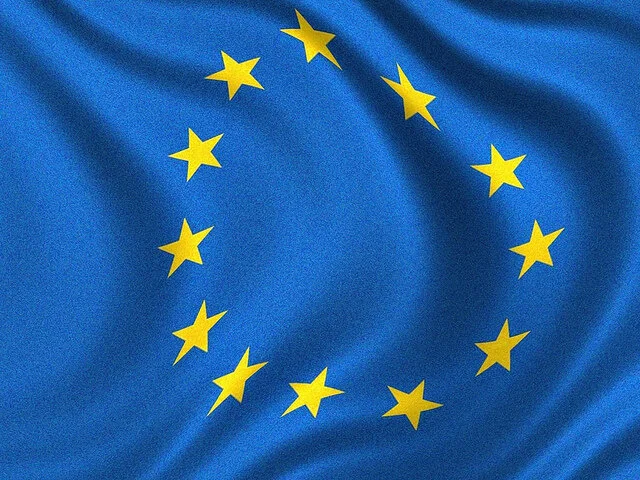This is a story that is made up of other stories. Many long stories are smaller stories pieced together. Star Wars is made up of the story of two droids escaping Tatooine, then the story of the heroes surviving inside the Death Star and finally the story of the battlestation’s destruction. Similarly, the news is the story of our civilization told through smaller stories about power cuts or votes in parliament.
This story begins not long after I finished university, when I was caught in the nether world of recent-graduate unemployment. I paraphrase Ronan Harris of Futurepop group VNV Nation: I was so far from the shores of studenthood I had left behind, still far from the shores of employment I had yet to reach. I got very good at playing Worms United on an old PS1 that I found in the basement.
At the time I was an angry young man and the focus of my anger was religion. I had recently read Richard Dawkins’s The God Delusion and was fired up to tell all religious people, of whatever faith, that they were wrong and that they needed to embrace the objective truth of science. Preferably through watching Richard Dawkins documentaries on DVD, which I owned quite a lot of. I know now that this attitude of superiority and rudeness to people who think differently is not helpful. I am still very much an atheist, but I do not feel the need to declare this to everyone I meet.
At the time, there was a story I told myself about who I was. The story was simple: through my life and learning I had come to see the truth of the universe: there was no bearded man in the sky who had made everything, no paternalistic father figure or jealous supernatural tyrant watching over us. I believed that the material world was all there was; no spirits or ghosts or angels or demons. My life via Scout Group church services and internet atheist forums had brought me to an understanding of this fundamental truth of the universe. It was a story that was incredibly important to me. The story was me.
Then I moved in with a group of former students in the same position as me. A group that included a High Anglican, who was considering a career in the priesthood of the Church of England, a Roman Catholic and a man who followed a diverse pantheon of gods and other supernatural beings drawn from a variety of faiths that included Buddha, nature spirits and the Norse god Loki, amongst others.
There is a finite number of hours that bored adults can play Worms United for, and so eventually we started arguing. A lot. About everything. Gradually, and through many shouting matches, something dawned on me. They were as smart as I was, probably smarter. There was not a veil of ignorance protecting their worldview that I needed to puncture. Not only that, but they had stories about their lives that had led them to be the people they were, just as I did.
This led me to think: who is the arbiter of objective truth? How do we know what is true and what is not?
In their book Factfulness: Ten Reasons We're Wrong About the World – And Why Things Are Better Than You Think, Dr Hans Rolsing, Ola Rosling and Anna Rosling Rönnlund laid out ten simple methods of defining the truth. Their tips (such as avoiding comparing extremes, remembering that things can be bad and getting better, avoiding lonely numbers and avoiding single perspectives) are useful for not being misled by eye-catching dramatic headlines, but they do not help tackle questions such as “is God real?”
Dr Rosling et al’s Factfulness ties in with post-enlightenment thinking, which claims that truth can be found in the scientific method. This appealed to me as an atheist, but the question of the existence or non-existence of God remains impervious to scientific investigation. We are no closer to a definitive answer to the question than the enlightenment thinkers were.
Technology companies claim that they have found the truth of humanity through big data. All the information gathered through our devices betrays the truth of who we are. We are more ourselves when we are alone with our phones then we are with anyone else. Big data reveals preferences and patterns of behaviour that even the most probing focus group cannot uncover. However, big data may reveal truths about human behaviour, but not about the universe.
I could not prove objectively that I was right, and that God or Loki did not exist. I did not stop being an atheist, and I still am. However, I came to see the story of my life not as a journey towards discovering a fundamental truth about the universe, but as a story of finding my truth about the universe, which was one amongst many. It was the only way to get along in a small house with no jobs, no money and little to do.
The story of my first post-university houseshare is now key to how I see myself. It includes the story that made me a hardcore Dawkins-esque atheist, but it also includes other important lessons about life such as the benefits of personal growth, the value of re-examining your thinking and the importance of friendship. This is a better story.
As well as my opinions about atheism, I have deeply held political views about the importance of being tolerant towards other people of different races, religions, sexualities, gender identities, subcultures and interests. I believe it is important to be respectful of other people and their personal stories.
The story of my post-university houseshare fitted into this. It was a story about how I was open-minded and receptive to a plurality of views and lifestyles. We cannot be certain that God did or did not cause the Big Bang, even though I believe he did not (or at least we cannot be as certain about the origins of everything as I am about the fact that the table I am leaning on exists). This also applies to the question of whether Loki is real or how tangible the spirit of Mother Nature is. I have my own beliefs, but I do not have a direct line to the objective truth of the universe. As we cannot know if our beliefs are the objective truth, it is important to be open to new ideas and to seeing the world from other people’s point of view.
There was another story that I told myself that factored into this. It was about all of history and how it could be expressed as the story the powerful trying to exploit the weak and the weak crying out in anger and frustration. This cry of frustration has echoed through time and could be felt in Moses’s demand of the Pharaoh to “let my people go,” through medieval peasant uprisings, the Levellers, Peterloo, the Suffragettes, the Civil Rights Movement, the Stonewall riots and all the way to anti-austerity protest movements. This cry of pain was captured in the works of Harriet Jacobs, James Baldwin, Robert Tressell, Pablo Picasso, Laurie Penny, the Selford Mods and many others. This was a single story of the shout of defiance in the face of oppression that had sounded throughout all of human history.
In the last few years this story of being tolerant to a plurality of different views and life stories has come under attack. There are those who do not want to listen to the voices that throughout history have cried out in pain as they were clamped down on. The voices of women, people of colour, LGBTQ+ people, poor people and people who did not fit into the limited range of pre-set sockets that their society had provided.
Being a tolerant person was part of the story of who I am, but I also agree with Karl Popper that: "In order to maintain a tolerant society, the society must be intolerant of intolerance." Attacks on tolerance have come from internet trolls who wish to silence women who speak out in the #MeToo movement and social media hate preachers who to vent their anger at people of colour who demand basic safety and bodily autonomy.
Some of those who attack tolerance are in groups with names such as GamerGate, the Proud Boys, Incels, the alt-right or neo-Nazis. There are too many to name here and we are all too painfully familiar with the forces of intolerance. There is no general name for them all that I could use in this polite essay, so I will refer to them as the “forces of intolerance”.
Members of the forces of intolerance have two things in common. Firstly, they reject the story of history as a cry of pain from the oppressed and in doing so reject the stories of many people throughout history who have suffered at the hands of the powerful. They seek to recast themselves (they are usually white, straight men) as the real oppressed people of history, and thus they reject any understanding of political power throughout history that I recognise.
Secondly, they believe that their actions are supported by objective truths about the universe. This I find very frightening. They have no time for the opinions of others or other people’s stories. It is no coincidence that thinkers championed by the forces of intolerance, such as Jordan Peterson, are so critical of postmodernism, as postmodern ideas about there being no objective facts threaten their certainty.
When I see Ben Shapiro claim that “the facts don’t care about your feelings” and then making an emotionally-charged, subjective statement which he passes off as fact, I remember the story of my life. A story that tells me that I used to believe that certainty was on my side until I met other people who were equally certain and so learned a valuable lesson. This was a painful, frightening lesson to learn, but it was worth it to be more open-minded to the experience of others.
The forces of intolerance have not learned this lesson. They believe they are irrefutably correct. However, they have no more claim to objective reality than my former housemate who had a shrine to Loki in his bedroom.
Where does their claim to objective truth come from? It comes from stories they tell with which a lot of people, sadly, have sympathy. Narratives play a bigger role in what we think is true than ‘Factfullness’, the scientific method or big data. In his radio show The Tyranny of Story, John Harris lays out how narratives are more effective in politics than facts. He shows how Donald Trump’s story about the dangers of vaccinations was much more effective in convincing people on the campaign trail than former neurosurgeon Ben Carson’s calm facts about vaccines.
Does what you believe to be true fit into a larger narrative? Does your story tie in with a bigger story like “Take Back Control”, “For The Many Not The Few” or “Make America Great Again”? If what you tell yourself about who you are fits into one of these larger narratives, then you are more likely to think your truth is the truth.
There are many of these larger narratives and they conflict with each other. Just because I can make my personal narrative fit with “For The Many And Not The Few” does not mean someone else cannot make their narrative fit with “Take Back Control”. We all have stories, so authenticity becomes important in judging what we believe to be true.
Cambridge academic David Runciman describes this in his book How Democracy Ends as an affirmation with authentic truth-tellers. We see these people as the ones who call out the fake narratives and reaffirm the authentic ones, i.e. the ones that chime with our own personal narratives. These people can be Chelsea Manning or Tommy Robinson.
Technology also contributes to a sense of certainty. We live our lives online, tell stories about our weekend on Instagram, our careers on LinkedIn, read stories about other people on Facebook and wider society on Twitter. There are millions (and in the case of Facebook billions) of people using these platforms, which means there is too much information and it would be too disorganised for us to see all of it. All of these platforms are gathering data about us and use this to customise what we see.
What I see when I log into Facebook or Twitter is different from what you will see. On some level it is an expression of my story as represented by data points and then fed back to me as content. A news story that fits with my personal narratives, and the larger narratives about society that a technology platform knows I subscribe to, will be more significant in my circle of digital friends than it will be for someone whose data points or personal narrative is different.
This process of personalisation of internet content is dividing us into different camps, and fundamental truths can vary massively between these camps. All of this is fed by the data that technology platforms have, which we gave as we expressed our personal stories through them.
This is what allows the forces of intolerance to claim that they see the world objectively. Their message is funnelled by technology platforms towards people who are likely to see the world as they do. They do not encounter opposing views, as I did in my first post-university houseshare.
Narratives will spread amongst people in these camps and take on the appearance of objective fact, just as Harris described for Trump’s comments about vaccinations. Some of these camps can be large, with names like liberal or conservative. Some of them can be small, but the effect of a story taking on the appearance of objective truth is the same.
This process is best illustrated by the story of the “Johnlock” fandom, a subset of the fans of the BBC TV show Sherlock who believe that there was a romantic connection between the characters of Sherlock Holmes and John Watson. Whether or not Holmes and Watson are secretly in love with each other cannot be proven objectively, but a story about the future of the TV show can take on the appearance of objective fact.
There is a sub-group of the Johnlock fandom called TJLC (The JohnLock Conspiracy) who believed that Holmes and Watson would become a couple at the end of the fourth series of the show and that its creators, Steven Moffat and Mark Gatiss, were hiding elaborate clues to this fact in the show.
Like any other group through which a narrative spreads and takes on the appearance of fact, TJLC is a community and its members put together elaborate explanations of why they were right. This included a 48-part YouTube series which asserted that Holmes and Watson would become a couple in the final episode of the fourth series. The final of the 48 videos claimed "it's about to happen", stating that Holmes and Watson will become a couple as a fact.
To the members of TJLC their belief was true - completely and irrevocably an objective truth. The story that they spread through the TJLC took on the appearance of objective fact, helped along by pieces of evidence such as the showrunners’ love of playing games with the fans and misdirecting them. Despite this, it was not revealed that Watson and Holmes were a couple in the final series of the BBC detective drama. The views of TJLC were revealed to be subjective opinions about where the show was heading.
Slate TV’s critic, Willa Paskin, interviewed members of TJLC for her podcast Decoder Ring, whose research I drew on heavily. When interviewing the progenitor of TJLC, who still asserts as fact that Watson and Sherlock will become a couple, Paskin states that she is becoming convinced of this fact despite the fact that there are currently no plans to make any more series of Sherlock. In the podcast Paskin said: “there is something compelling about being in the presence of so much passionate certainty."
The certainty with which TJLC asserted their subjective view of the reality of the Sherlock TV show led me to believe that everyone sees the world subjectively, based on their own personal story, the narratives about wider society they subscribe to, the personalised information environment they get from social media, and the community bubble they live in made up of their friends, family and other people who are likely to be similar to them. Within our own subjective lives there are things that are objective truth to us, but they are all in reality subjective. We all live subjective lives.
Fake news is a part of this. It reflects the subjective lives people live and the fact that they think their subjective truth is an objective truth. “Pope Endorses Trump”? This is an objective truth to the people who support Trump and shared this fake news story on Facebook. To them, how can the Pope not support Trump? How can this not be true?
The forces of intolerance do not see their subjective view of reality as subjective. They see it as objective reality, just as members of TJLC did. This inability to see other people’s subjective truths as having validity equal to theirs is one reason why they cause so much pain.
In their minds, it is an objective truth that saying racist, sexist or homophobic things is acceptable. In their minds, the symbols of the Confederate flag or Nazi swastika represent an objective truth about the universe that everyone else does not understand. They are wrong, but this does not stop them from causing lots of emotional and physical pain. I am writing on the two-year anniversary of Heather Heyer being killed by neo-Nazi James Alex Fields Jr at the “Unite the Right” rally in Charlottesville, Virginia. This showed how dangerous people can become when they believe they have objective truth on their side.
There are many other subjective narratives that cause pain. In some people’s minds it is an objective fact that vaccines have a risk of causing autism. This narrative causes real pain for children who catch the diseases for which vaccines are available. It also causes pain for the people who cannot get vaccinated and so rely on herd immunity to keep them safe.
Narratives that deny climate science or seek to minimise the threat posed by the climate emergency also run the risk of causing real pain when communities are destroyed by rising sea levels. A subjective truth backed up by a story has a huge amount of power to hurt people.
There was a story I told myself about the world not having an objective truth in it. This story helped me understand the person who I was. However, I had to outgrow it to live with other people and to understand that they had their own story informed by different ideas, different personal experiences and different facets of the world. This allowed me to understand that the world is made up of subjective truths which might appear objective, but are not.
The world is made up of subjective truths, but this should not minimise the pain that these truths can cause. Pain is real and it is the only universal truth, so we must do what we can to minimise it, and even if we don’t understand someone’s pain we should do what we can to help them. The forces of intolerance do not see the pain that their narratives bring, and therefore their narratives must be opposed.
This is a story about how we can live together by recognising the subjectivity of each other. However, we can’t live together if it means that our own subjective truths lead us to inflict pain on each other. We must learn there is no objective truth and we must learn not to hurt each other.
"Richard Dawkins no Fronteiras do Pensamento Porto Alegre" by fronteirasweb is licensed under CC BY-SA 2.0













































